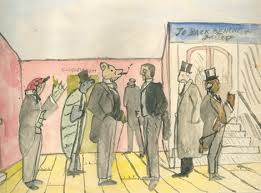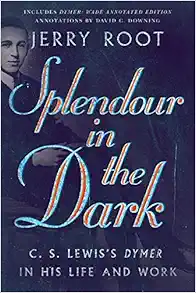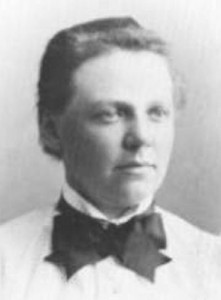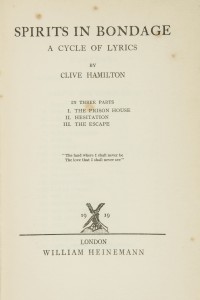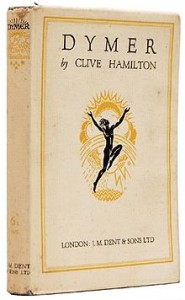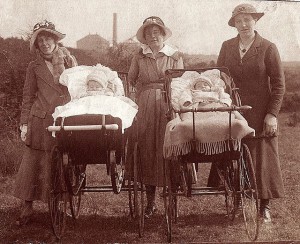Dear readers,
My sincerest apologies for the long delay in completing this blog series. My husband and I have both experienced health issues (aside from very busy schedules). Thankfully, we are both recovered. I now present you with the much-awaited post on Narnia, perhaps the most controversial works concerning Lewis’s portrayal of women. Thank you for your patience (and continued encouragement!). I appreciate your kindness. 🙂
Happy Reading!
Week Nine- Lewis and Women: Portrayals in The Chronicles of Narnia
![lucy 9[1]](http://crystalhurd.com/wp-content/uploads/2013/11/lucy-91-300x219.jpg)
Photo courtesy of untraveledworlds.blogspot.com
“What is disturbing in the Narnian Chronicles, as well as in the whole range of Lewis’s literary corpus is the way in which ultimate good is depicted as ultimate masculinity, while evil, the corruption of good, is depicted as femininity” – Kath Filmer from the chapter “Masking the Misogynist in Narnia and Glome” from The Fiction of C. S. Lewis
“Boys are better than girls; light-colored people are better than dark-colored people and so on…Susan, like Cinderella, is undergoing a transition from one phase of her life to another. Lewis didn’t approve of that. He didn’t like women in general, or sexuality at all, at least at the stage in life when he wrote the Narnia books. He was frightened and appalled at the notion of wanting to grow up” – Phillip Pullman, interview in The Guardian 1 October 1998
“There comes a point where Susan, who was the older girl, is lost to Narnia because she becomes interested in lipstick. She’s become irreligious basically because she found sex. I have a big problem with that” – J.K. Rowling interview in Time Magazine 17 July 2005
“Lewis had no difficulty mating beavers happily, but whenever we find him placing a man in proximity to a woman, or in situations that might suggest a muse relationship it is to expose the pairing as unnatural and wicked… Lewis feared women and disliked them categorically… The actual provocation for executing these seven novels sprang from his need to put a woman in her place—or two women, perhaps, or all of them” – John Goldthwaite, The Natural History of Make-Believe
“Only one of the children from the original quartet is excluded from heaven. This is Susan. She has committed the unforgivable sin of growing up” – A.N. Wilson, C.S. Lewis: A Biography
“[Narnia] is monumentally disparaging of girls and women. It is blatantly racist. One girl was sent to hell because she was getting interested in clothes and boys.” – Phillip Pullman, interview in The Guardian 3 June 2002**
**On a side note, if a text is “disparaging of girls and women”, it isn’t “racist”, it’s sexist. Secondly, Susan was not “sent to hell”; she did not die in the accident which killed her siblings, which means she still lives in the real world and thus, can still choose to enter Aslan’s Country later.
A special thanks to Lewis scholar Devon Brown for the references to several of these quotes, found in his exceptional essay: “Are The Chronicles of Narnia Sexist and Racist?”
———————————————————————————————————————–
My, my. What vitriol and calumny is this?
Perhaps no other work of Lewis’s has drawn more criticism on gender than The Chronicles of Narnia. Any causal reader could make the argument that some of the females are typecast (“‘Just like a girl,’ said Edmund to himself, ‘sulking somewhere, and won’t accept an apology'” LWW 33). Perhaps the strongest evidence is Susan’s exclusion from Aslan’s Country in The Last Battle. For those who are unfamiliar with Lewis’s larger body of work, this may appear to be a plausible argument. However, most critics (perhaps intentionally) eliminate or ignore specific characters which, upon further analysis, completely dismantle the old arguments that Lewis is a misogynist.
When I hear or read negative gender criticisms on Lewis, my first thought is that a close reading has not been given to the text. There are not simply two female characters (queens) in Narnia. Some are quick to add, “Yes, there are also two witches”. But what of Polly from The Magician’s Nephew, or Jill from The Silver Chair, or (my personal favorite) Aravis from The Horse and His Boy? And shall I dive further into other great female animals, such as Mrs. Beaver? These females present a wide spectrum of personalities and with further examination, illustrate Lewis’s range in writing women characters.
Recently, several fascinating articles have been written on the subject. Back in June, Matthew and Joy Steem wrote a compelling piece titled “Finding a Feminine Theology in C.S. Lewis’s Narnia” for Christianity Today (link here). In the article, the authors reference an excellent book composed by Monika Hilder which has reconceptualized the lens with which we analyze Lewis and gender. Hilder’s scholarship is also featured in the upcoming collection of essays on Perelandra, edited by the insightful and erudite Judith Woolf (e-reader edition available here).
Here we see, slowly, the tide of popular opinion beginning to turn.
If you are persuaded by data, notice that Lewis wins that argument outright. Take for example, Lewis’s choice of protagonists. He maintains a steady balance of both male and female lead characters throughout ALL of the stories. Abbreviations of the titles will be used for the remainder of this article.
The Lion, the Witch, and the Wardrobe [LWW]and Prince Caspian [PC]= two male and two female monarchs, Caspian in PC
The Voyage of the Dawn Treader [VDT] = One male monarch and one female monarch (Lucy and Edmund)
*King Caspian and Eustace also serve as protagonists. Because the setting of this tale is on a ship, there is a noted absence of females. However Lewis places Lucy and later Ramandu’s daughter into the story.
The Silver Chair [SC]= Eustace and Jill
The Horse and His Boy [HHB]= Shasta and Aravis
The Magician’s Nephew [MN]= Digory and Polly
The Last Battle [LB] = Return of all male and female protagonists except for Susan
For the sake of argument, I will provide a summary of the major and minor female characters in Narnia and divide them into “positive” and “negative” categories. I do this simply to illustrate the absurdity of the accusations against Lewis, a man who has been, in many other works, lauded for his precision and accuracy in capturing the human condition. Some scholars, such as Mary Stewart Van Leeuwan, posit that Lewis’s portrayal of women shifts throughout the Narnian chronicles. The merit of such arguments can surely be justified with a close reading of the text, but I aim to show that Narnian females are not initially displayed in a negative light. Paul Ford in his Companion to Narnia concurs with this observation:
It must be said that in the final phase of the creative energy that produced the Chronicles -the phase that produced the last three books – Lewis’s female characters, Jill and Polly, reflect a writer more in touch with the reality of women and therefore more willing to see them as free individuals, capable of exploding cultural strictures and stereotypes. This must be attributed to his growing correspondence with women readers, especially those seeking his advice in spiritual matters; to his firsthand relationships with female students and coleagues and with the wives of his male students and colleagues; and to his female friends, especially Pauline Baynes, Dorothy Sayers, Stella Aldwinckle, Ruth Pitter, Joy Davidman (later Lewis’s wife), and Lady Dunbar of Hempriggs (Mrs. Moore’s daughter Maureen, Lewis’s “foster-sister,” who is only eight years Lewis’s junior and with whom he lived from late 1920 to the summer of 1941, the year of her marriage. (393)
Ford is also quick to point out that Lewis places “stock responses to women in the mouths of fools” such as Rabadash (390). Young Edmund also illustrates a gross misunderstanding of women, which causes some arguments among his female siblings. Several of the Narnian girls/women possess what would be considered conventionally feminine qualities, but these are not interpreted in Lewis’s text as weaknesses. In contrast, male and female characters use their various strengths to cooperatively solve issues, illustrating how males and females roles are complementary. As I will point out in the summaries, Lewis crafts diverse, complex female characters. Some characters are reprimanded by Aslan for their stubbornness and pride, some for their mistaken presuppositions, some for their gluttony and greed; it is significant to note that Aslan does not distinguish between males and females when he delivers this wisdom. Lewis does not discriminate when placing characters in situations in which they must be admonished, corrected, and ultimately forgiven.
BENEVOLENT FEMALES IN NARNIA
Lucy Pevensie
![53967-26700[1]](http://crystalhurd.com/wp-content/uploads/2013/11/53967-2670011-300x225.gif)
The Pevensie children (and by extension, you and I) would not know the joys of Narnia without the indomitable faith of Lucy Pevensie. It was Lucy who innocently explored an empty room of the Professor’s massive manor and, during a game of hide-and-seek, pushed aside fur coats and tree limbs to discover a snowy landscape at Lantern Waste. It was her cheerful disposition which prompted Mr. Tumnus’s remorse after he reported her presence to the White Witch. Throughout the stories, her faith in Aslan is a constant source of inspiration and a testament to the power of perseverance. In Prince Caspian, Lucy is the only monarch to detect Aslan’s presence in the forest and later lead the group by Aslan’s shadow (this is after the group discusses holding a democratic vote among them to determine which route to take – Peter later wrongly vetoes this decision and leads them astray). Even as she ages and trips over the obstacles of late childhood/early adolescence, Lucy illustrates her undying devotion to Aslan. I refer specifically to a passage in The Voyage of the Dawn Treader. While perusing the Book of Incantations, Lucy stumbles upon spells which exploit her nagging inadequacies – “An infallible spell to make beautiful her that uttereth it beyond the lot of mortals” and another “which would let you know what your friends thought about you”. When Lucy contemplates reciting the first spell, Aslan appears and growls at her. Lucy declines the first spell, but recites the second and is terribly disappointed when her supposed friend admits that she was “getting pretty tired of [Lucy]”. Some critics state that Lewis is being stereotypical, but as a female, I can attest that young girls often concern themselves with beauty and popularity. And if we all would admit it, young men do as well. As a high school teacher, I observe this on a daily basis. Lewis submits an honest portrayal of the complexities of childlike faith tangled with the human desire for attention and acceptance.
Susan Pevensie (Yes, I believe she’s benevolent!)
![susanbow[1]](http://crystalhurd.com/wp-content/uploads/2013/11/susanbow11-300x125.jpg)
Photo courtesy of s239.photobucket.com
Ah, here we arrive at the crux of the argument. Most of Lewis’s critics cite his expulsion of Susan as the ultimate insult – a woman who is too interested in nylons and lipstick to return to Aslan’s Country. Most of the dissenters focus solely on Susan’s absence, however, she plays a vastly important role throughout the Chronicles. She matures into a beautiful woman, one who is described in HHB by Corin as “more like an ordinary grown-up lady. She doesn’t ride to the wars, though she is an excellent archer” (290).
Several passages note Susan’s desire to be “grown up”. Susan often attempts to mother her siblings in the absence of their parents, feeling that she and Peter should exercise that responsibility as older siblings. However, Susan is still a girl in many ways, and struggles with the transition to adulthood. Ford mentions, “As a girl moving into young womanhood, never an easy time, Susan is caught between the conflicting desires to be always a child and to be completely grown-up. She is neither here nor there, and the ecstatic side of life would be too much for her to deal with, were it not for Aslan” (417). Her beauty is mentioned many times; Lucy aspires to be as beautiful as Susan in VDT. Her mothering instinct is evident when she attempts to decide what is best for them, saying “I told you so” when bad judgment is exercised, yet she wrestles internally with fear and a severe lack of confidence. However, Susan still possesses a deep compassion and concern for her brothers and sisters, and by extension, all of the creatures they meet in Narnia. She eschews killing anything, even a bear that nearly attacks her. Like Mary Magdalene(s), Susan and Lucy are present when Aslan is slain on the Stone Table and also are the first to see him after the Deep Magic resurrects him.
In LB, a somewhat awkward, uncomfortable conversation takes place about Susan’s absence. Some characters express distaste at Susan’s decision (ironic when one considers her refrain “I told you so”). It is imperative that people understand that Susan DID NOT DIE in the railway accident that claimed the rest of her family. Therefore, she still has an opportunity to enter Aslan’s Country at a later time, when she is ready and has perhaps matured past the frivolous distractions which absorb her time and attention. She is not “lost”, she is not “condemned to hell”. She continues to exist in England. Hopefully, in the shadow of tragedy, Susan will again return to Aslan and wish to enter His country, but her moment has not yet arrived. Although the decision to keep Susan out has prompted much scrutiny for Lewis, perhaps it shows us the innate power (and consequently the isolation) of our decisions, of forking paths carved carefully by our choices. There is still another chapter awaiting us, a great reunion is being written.
Maybe it illustrates that she is not beyond redemption.
*All illustrations are photos taken from my copy of first edition reprints of The Chronicles of Narnia (Pauline Baynes, illustrator).
Jill Pole
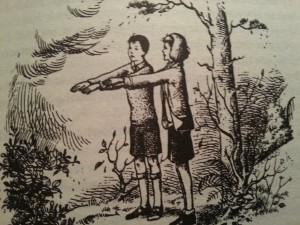
When we first meet Jill, she is weeping behind the schoolhouse, a victim of vicious bullying by mean schoolgirls. Eustace, who seems to have improved some after his first trip in Narnia in VDT, attempts to comfort her. Both wish to escape the nasty environment of Experiment House and when the bullies begin the pursue them, Jill and Eustace run away and find themselves in Narnia. They argue often, and in an effort to illustrate her comfort with heights, Jill accidently prompts Eustace’s fall off a cliff (and into a cloud – don’t worry!). Jill then meets Aslan and is given the important task of remembering four important signs which will help them in uncovering the lost Prince Rilian:
1) Eustace will meet an old friend and must greet him at once
2) They must journey north of Narnia to the land of ancient giants
3) They will find writing on a stone in the ruined city and they must do what the writing instructs
4) They will know who the lost prince because he will be the first one to ask them to do something in Aslan’s name.
Indeed, the whole outcome of the adventure rests securely on Jill’s shoulders. Eustace is not present when Aslan makes Jill memorize the signs and Jill struggles throughout the story to remember what the great lion has told her. With Jill’s final recognition of the signs, the heroes defeat the Queen of the Underland and rescue Prince Rilian. Although she struggles with fear, uncertainty, and lack of confidence, Jill eventually overcomes these insecurities and succeeds in following Aslan’s commands. With this surge of assurance, the children return to defeat their schoolyard enemies. They pursue and overtake the bullies, who cry “Murder! Fascists! Lions! It isn’t fair“.
By the time Jill returns to Narnia at sixteen in LB, she has developed into a competent, trustworthy leader. Gone is the girl who upbraided herself for forgetting Aslan’s signs; here is a young woman who helps lead her friends through the forest by learning the compass points, who rescues Puzzle, and kills and prepares a rabbit for sustenance. Puzzle’s absorption into the army of true Narnians is poignant as Jill realizes that Puzzle, although initially an enemy, was actually being exploited by the selfish ape Shift. By rescuing him, she illustrates the warmth of her character, extending forgiveness and protection from Shift and his minions. Concerning the rabbits, Ford recalls that this is the first instance of a woman hunting in Narnia. She cannot carry a sword, but handles a knife well. When she admits her weaknesses in archery, Eustace believes Jill to be modest and disagrees, saying that her skills are “about as good” as his. Because of her excellent skills, Jill is chosen to cover for the company as they “made a preemptive strike” which shows that the group entrusts Jill with their lives. She is saddened at Narnia’s destruction but passes happily into Aslan’s Country.
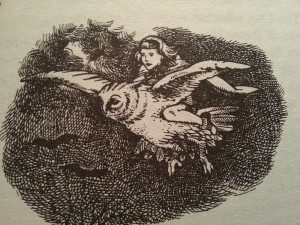
Polly Plummer
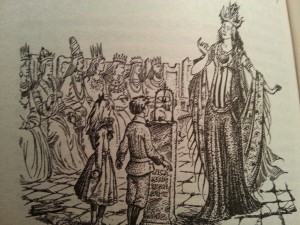
Polly is the first female to enter the Wood Between the Worlds. Polly and Digory are bored and curious children. Polly comes across as a bright, independent female who wishes to lift Digory from depression (his mother is very ill). After snooping around the attic rooms (by Polly’s initiative), they find Uncle Andrew’s strange rings and are transported to the Wood Between the Worlds. She is careful to not become too distracted by the promise of adventure and comfortably takes charge with cautious optimism. Paul Ford writes, “Even here her rationality and leadership prevail: She becomes absorbed in Digory’s explanation of the place and gives it its name; she takes charge of the situation because of her instinctive sense that Digory isn’t very prudent when his curiosity is aroused; she insists that they test a sure way back before they continue their explorations, and that she be the one to signal when they should end their experiment”. Time and time again, Polly displays a clearer state of mind and better judgment. Unlike Digory, she is not tempted by the mysterious bell or the frozen Queen’s beauty. She also illustrates keen insight, immediately recognizing Jadis as a “terrible woman”. The creation of Narnia delivered through Aslan’s song is told from Polly’s point-0f-view and she remains a benevolent character throughout the story. She even accompanies Digory on his journey to retrieve the silver apple. She becomes quick friends with Queen Helen. In LB, she perishes in a railway accident while attempting to get the rings so Jill and Eustace can return to Narnia, but she is reunited with all in Aslan’s Country. In both Narnia and England, Polly remains unmarried, although she is happy and satisfied with life. Ford states that Polly “never does fulfill the traditional female role” but is portrayed as a positive character throughout. She is referred to in LB as “Lady Polly”.
Aravis
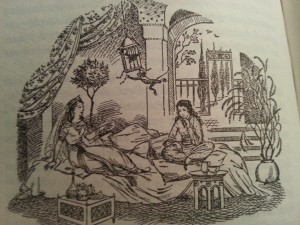
Paul Ford states that Aravis is “the pivotal female character in Lewis’s growing insight into the feminine character” (388). When we first meet Aravis, she is dressed in her brother’s armor in the dead of night. Aravis is what we would consider a “tomboy” who is “an equestrienne of great competence”. When she first meets Shasta and Bree, she is not frightened; in fact she illustrates a formidable confidence. Shasta first mistakes her for a man “with no beard”, but as she nears, he surprisingly proclaims, “Why, it’s only a girl!”. Without hesitation, Aravis quickly replies, “And what business is it of yours if I am only a girl…You’re only a boy: a rude, common little boy – a slave probably, who’s stolen his master’s horse” (218). Ironically, Aravis and Shasta collaborate to unravel the Calormene plot and eventually defeat the army, but this first exchange is indicative of future “quarrelling and making up” which later leads to their “marrying so as to go on doing it more conveniently” (310).
Her first decisions show how inconsiderate and rash she is, although it simultaneously illustrates her intelligence through stealth and strategy. When she is betrothed to the deplorable social-climber Ahoshta Tarkaan by her father, Aravis strongly considers suicide, but then elects rather to run away. In her plan, she drugs her nurse’s wine, causing her to oversleep so Aravis can sneak out undetected. Aravis admits that the nurse will most likely be beaten for oversleeping, but that she was a “a tool and spy of her step-mother’s” and that she would be “very glad” if she suffered a beating. Next Aravis doctors a letter from “Ahoshta” stating that he had already married Aravis. Later, while trying to remain anonymous in Tashbaan, she is recognized by her superficial pal Lasaraleen. Lasaraleen and Aravis have a meeting later in which Aravis explains why she left. However, Lasaraleen is so self-absorbed and tempted by the idea of wealth that she tunes out Aravis’s tale and questions why her friend would abandon such great luxuries:
Although Lasaraleen had said she was dying to hear Aravis’s story, she showed no sign of really wanting to hear it at all. She was, in fact, much better at talking than listening. She insisted on Aravis having a long and luxurious bath (Calormene baths are famous) and then dressing her up in the finest clothes before she would let her explain anything. The fuss she made about choosing the dresses nearly drove Aravis mad. She remembered now that Lasaraleen had always been like that, interested in clothes and parties and gossip. Aravis had always been more interested in bow and arrows and horses and dogs and swimming. You will guess that each thought the other silly. But when at last they were both seated after a meal (it was chiefly of the whipped cream and jelly and fruit and ice sort) in a beautiful pillared room (which Aravis would have liked better if Lasaraleen’s spoiled pet monkey hadn’t been climbing about it all the time) Lasaraleen at last asked her why she was running away from home.
When Aravis had finished telling her story, Lasaraleen said, “But darling, why don’t you marry Ahoshta Tarkaan? Everyone’s crazy about him. My husband says he is beginning to be one of the greatest men in Carlormen. He has just been made Grand Vizier now old Axartha has died. Didn’t you know?”
“I don’t care. I can’t stand the sight of him,” said Aravis.”
“But darling, only think! Three palaces, and one of them that beautiful one down on the lake at Ilkeen. Positively ropes of pearls, I’m told. Baths of assess’ milk. and you’d see such a lot of me.”
“He can keep his pearls and palaces as far as I’m concerned,” said Aravis.
“You were always a queer girl, Aravis,” said Lasaraleen. “What more do you want?” (251-252)
It is important to note that Lewis is not presenting Lasaraleen as a “typical woman” but as an almost comic foil to Aravis (similar to Eustace in VDT). Lewis is showing how not to act with the character of Lasaraleen, but illustrating how petty and foolish she is. Aravis is focused solely on survival, while Lasaraleen is intoxicated by the allure of wealth and power. Lasaraleen will see for herself when she and Aravis hide behind a couch pursued, they believe, by the Tisroc. While concealed, the women overhear a discussion between Prince Rabadash (who wishes to marry Susan), the Tisroc, and the Grand Vizier. The marriage between Rabadash and Susan would give Tisroc an opportunity to invade Narnia and bring it under Calormene rule. Aravis will eventually tell the plan to Shasta and become a harbinger for the upcoming war against Narnia and Calormenes. It is Aravis’s inside information which greatly assists the Narnian victory.
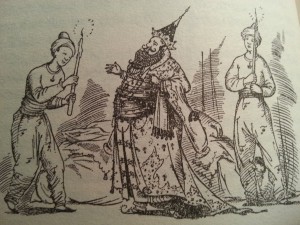
Ford also argues that Aravis makes impressive strides to become “true Narnian nobility” which is characterized by “humble and compassionate leadership”. When she faces Aslan, she is humbled, her arrogance dissipates. In the story, she is chased and severely scratched by a lion. Later, Aslan informs Aravis that HE was the lion and the marks on her back are the same ones that her nurse received after Aravis left. Shortly after this, Aravis apologizes to Shasta for being “such a pig” to him. By the end of the story, she has grown into a truly remarkable leader and, more importantly, an obedient servant of Aslan.
Helen, first queen of Narnia
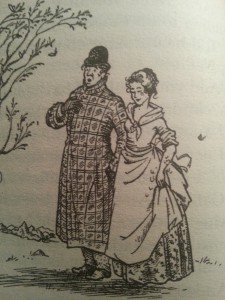
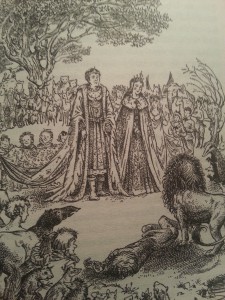
Named after Lewis’s wife (Helen) Joy Davidman Lewis, Helen is the humble cabbie’s wife who is pulled into Narnia with a strange cast of characters. Through Aslan’s decree, she is transformed from a lowly worker to Narnian royalty. Before being pulled into Narnia, her name was Nellie. Both Helen and Frank question their qualifications to rule Narnia, and Aslan tells them that their humility and honesty in admitting their uncertainty further confirms their readiness to lead.
![surprised_by_joy1[1]](http://crystalhurd.com/wp-content/uploads/2013/12/surprised_by_joy11.jpg)
Photo from an earlier post on Joy Davidman Lewis
Ramandu’s Daughter
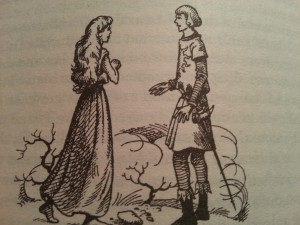
Although a minor character, Ramandu’s daughter plays an important role in two of the Narnian Chronicles. She serves as a guide in Prince Caspian, leading the travelers to Aslan’s Table. After meeting her, Price Caspian is smitten with her and later marries her. She is the mother of Prince Rilian, who sets out to avenge his mother after she is killed by an evil serpent. While attempting to recover her, Rilian becomes a prisoner of The Queen of the Underworld in The Silver Chair.
MALEVOLENT FEMALES IN NARNIA
The White Witch
![white-witch-narnia[1]](http://crystalhurd.com/wp-content/uploads/2013/11/white-witch-narnia1-300x214.jpg)
Photo courtesy of www.narniafans.com
Chronologically, the White Witch is first known as Jadis. She is the offspring of a Giant and Lilith and is the last queen of Charn. It is revealed in MN that she has defeated her sister with the Deplorable Word. When Digory and Polly first encounter Jadis, she is frozen, but has placed a cryptic, yet tempting message on a bell. Digory rings the bell to satisfy his curiosity, and thus “unfreezes” Jadis so she can continue to pollute the remains of Charn. Although the children don’t like her, she clings to Polly as they clasp the magic ring and returns to London with the children. Once there, she is as tyrannical and ridiculous as ever; she receives a very cold welcome from Aunt Letty who, in a comical scene, questions why her brother has brought a strange, beautiful (and arrogant) woman into their home. When the motley crew returns back to Narnia, Jadis refuses to bow to Aslan and throws a metal bar at him. The bar bounces off of Aslan’s face and where it lands, a lamp emerges. This becomes Lantern Waste. Aslan succeeds in keeping Jadis out of Narnia by a Tree of Protection, however, by the time of LWW, Jadis has not only returned, but reigns over Narnia, prompting the hundred years of winter. She famously tempts Edmund with Turkish Delight and hot chocolate and Edmund foolishly trusts her. However, when he returns to her castle, he is imprisoned and has essentially endangered his siblings. The White Witch (as she is known in LWW) is now knowledgeable in the “Deep Magic” and announces to all that Edmund must die. Aslan negotiates to substitute for Edmund, taking the punishment upon himself. In a sad, stirring scene, the White Witch orchestrates Aslan’s death as her minions look on and laugh. Eventually, Aslan kills her himself and peace is restored.
Notice here that the White Witch possesses no “feminine” qualities throughout. She is deceptive, selfish, greedy, and lustful for power. She is a foil to the more compassionate Queens Lucy and Susan. This is significant to note, as some critics claim that Lewis only places evil women in power. There are myriad examples throughout The Chronicles of Narnia in which gentle, intelligent women rule with justice and compassion, in the name of Aslan. Lewis has noted before that leadership uninformed of ethics is vulnerable to corruption. The White Witch (no matter her gender) attempts to rule against the Good, against Aslan. Her flagrant disobedience, not her sex, is the reason for her failure as a leader.
Queen of the Underland (or Lady of the Green Kirtle)
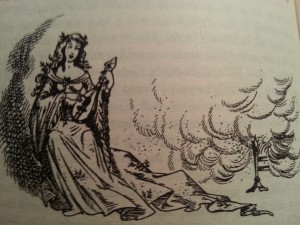
The Queen of the Underworld first appears to the children of SC as a beautiful mistress with a long, flowing gown. She appears with “helpful advice” and a musical voice, suggesting that the tired travelers visit Harfang for warm beds, good company, and sustenance. What the gang does not know is that they are the intended meal. This mysterious beauty has intentionally led them astray. Thankfully, the group is much smarter than the giants they encounter, and they escape without becoming an appetizer. When they head underground led by one of Aslan’s signs (the message reads “UNDER ME”), they meet a new species of underground men and encounter a confused stranger who turns out to be the one they seek, Prince Rilian. However, he is under a curious spell and cannot remove himself from a silver chair. The Queen enters and throws powder of the fire. The room fills with a thick fog, which is both physical and metaphorical. As the Prince attempts to discuss Narnia, the Queen tells him that there is no such thing. She questions the existence of Narnia and tells the Prince that it and “the Overworld” simply do not exist:
You see? When you try to think out clearly what this sun must be, you cannot tell me. You can only tell me it is like the lamp. Your sun is a dream; and there is nothing in that dream that was not copied from the lamp. This lamp is the real thing; the sun is but a tale, a children’s story…I see that we should do no better than your lion, as you call it, than we did with your sun. You have seen lamps, and so you imagined a bigger and better lamp and called it the sun. You’ve seen cats, and now you want a bigger and better cat, and it’s to be called a lion. Well, ’tis a pretty make-believe, though, to say truth, it would suit you all better if you were younger. And look how you can put nothing into your make-believe without copying it from the real world of mine, which is the only world. But even you children are too old for such play. As for you, my lord Prince, that art a man full grown, fie upon you! Are you not ashamed of such toys? Come, all of you. Put away these childish tricks. I have work for you all in the real world. There is no Narnia, no Overworld, no sky, no sun, no Aslan. And now, to bed all. And let us begin a wiser life tomorrow” (631-632)
Those who have read the story know what happens next. Puddleglum, the consummate pessimist, defeats the Queen’s argument by claiming that if they had indeed made up all of these things, the pantomime is much more convincing than the supposed “real thing”: “Then all I can say is that, in that case, the made-up things seem a good deal more important than the real ones. Suppose this black pit of a kingdom of yours is the only world. Well, it strikes me as a pretty poor one” (633). Puddleglum extinguishes the fire by stamping on it and restoring clarity to the room (and the conversation). The Queen takes the form of a serpent and the men attack and kill her.
Interestingly enough, Lewis puts the words of the intelligentsia, the rationalists into the mouth of a female queen. The strongest arguments that Lewis encountered against Christianity are seamlessly interwoven into SC and are not spoken by a man, but a woman. Does Lewis portray women as weak and helpless? No, here he crafts a female with a strong intelligence. Most critics are quick to point out that Lewis makes “a smart woman” an evil woman, but this is a logical fallacy. Throughout the Chronicles, many of the females are headstrong, intelligent, confident women. Are they flawed? Yes, but all of the characters are flawed, men included. Peter, Edmund, and Prince Caspian struggle with a “royal ego”, Eustace from a poor attitude. King Miraz and Glozelle, masculine characters, are examples of corrupt leadership.
The Head of Experiment House
Although a very minor character, the Head of Experiment House represents all that is wrong (in Lewis’s perspective) with education. If you are interested in examining further, simply read The Abolition of Man, his essay “Democratic Education” and selected correspondence. It is only parenthetically mentioned that she is a woman when, at the end of SC, the characters return from Narnia and wreak havoc on their bullies. She is surprised to see a lion with the children, and immediately phones the police. Lewis then provides comical commentary on what I interpret as the state of education, not a scathing critique of feminine leadership:
When the police arrived and found no lion, no broken wall, and no convicts, and the Head behaving like a lunatic, there was an inquiry into the whole thing. And in the inquiry all sorts of things about Experiment House came out, and about ten people got expelled. After that, the Head’s friends saw that the Head was no use as a Head, so they got her made an Inspector to interfere with other Heads. And when they found she wasn’t much good even at that, they got her into Parliament where she lived happily ever after.
____________________________________________________________________________________
There is much more to explore in Narnia, but most of these criticisms concern misunderstandings by the opposite sex. In a future post, I will explore further some significant themes that make up the tapestry of Lewis’s thought on male and female roles, including some important information on Bulverism, and his issue with feminism.
Next week, we will discuss Lewis’s space trilogy, including The Green Lady and Jane Studdock. Won’t you join me?
It’s good to be back folks. Thanks again for your patience. 🙂
![5142ALDR5BL._BO2,204,203,200_PIsitb-sticker-v3-big,TopRight,0,-55_SX278_SY278_PIkin4,BottomRight,1,22_AA300_SH20_OU01_[1]](http://crystalhurd.com/wp-content/uploads/2014/11/5142ALDR5BL._BO2204203200_PIsitb-sticker-v3-bigTopRight0-55_SX278_SY278_PIkin4BottomRight122_AA300_SH20_OU01_1.jpg)
![460__9419660[1]](http://crystalhurd.com/wp-content/uploads/2014/04/460__94196601-300x283.jpg)
![C-S-Lewis[1]](http://crystalhurd.com/wp-content/uploads/2014/02/C-S-Lewis1-300x212.jpg)
![images[6]](http://crystalhurd.com/wp-content/uploads/2014/02/images6.jpg)
![cslewis-5[1]](http://crystalhurd.com/wp-content/uploads/2014/02/cslewis-51-300x271.jpg)
![faces[1]](http://crystalhurd.com/wp-content/uploads/2014/01/faces1-197x300.gif)
![333848_f260[1]](http://crystalhurd.com/wp-content/uploads/2014/01/333848_f2601-188x300.jpg)
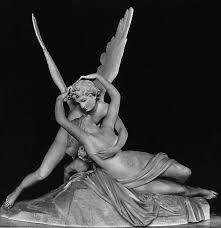
![How-can-the-gods-meet-us-face-to-face[1]](http://crystalhurd.com/wp-content/uploads/2014/01/How-can-the-gods-meet-us-face-to-face1-223x300.jpg)
![8540669117_f7a74cee73[1]](http://crystalhurd.com/wp-content/uploads/2014/01/8540669117_f7a74cee731-198x300.jpg)
![FieldofArbol[1]](http://crystalhurd.com/wp-content/uploads/2014/01/FieldofArbol11-160x300.png)
![perelandra[1]](http://crystalhurd.com/wp-content/uploads/2014/01/perelandra11-300x157.jpg)
![perelandraTheGreenLady[1]](http://crystalhurd.com/wp-content/uploads/2014/01/perelandraTheGreenLady1-271x300.jpg)
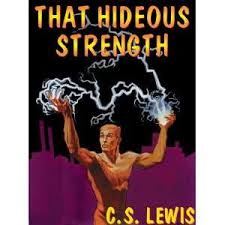
![THTHDSSTRN1973[1]](http://crystalhurd.com/wp-content/uploads/2014/01/THTHDSSTRN19731-202x300.jpg)
![lucy 9[1]](http://crystalhurd.com/wp-content/uploads/2013/11/lucy-91-300x219.jpg)
![53967-26700[1]](http://crystalhurd.com/wp-content/uploads/2013/11/53967-2670011-300x225.gif)
![susanbow[1]](http://crystalhurd.com/wp-content/uploads/2013/11/susanbow11-300x125.jpg)







![surprised_by_joy1[1]](http://crystalhurd.com/wp-content/uploads/2013/12/surprised_by_joy11.jpg)

![white-witch-narnia[1]](http://crystalhurd.com/wp-content/uploads/2013/11/white-witch-narnia1-300x214.jpg)

![Pilgrimsregress[1]](http://crystalhurd.com/wp-content/uploads/2013/08/Pilgrimsregress1-193x300.jpg)
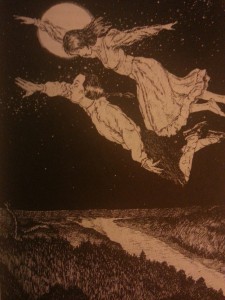
![lewis-and-wife[1]](http://crystalhurd.com/wp-content/uploads/2013/05/lewis-and-wife1-300x232.jpg)
![lucy-peeking-into-the-wardrobe[1]](http://crystalhurd.com/wp-content/uploads/2013/05/lucy-peeking-into-the-wardrobe1-300x209.jpg)

